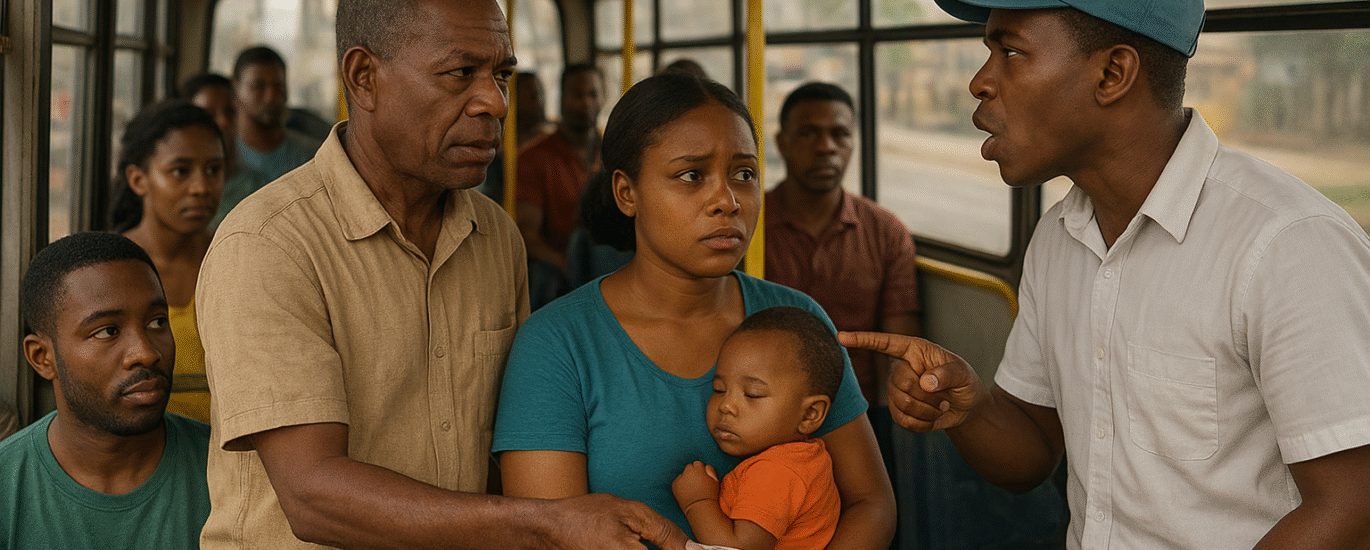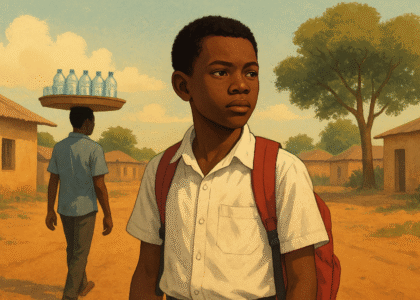It was a hot afternoon in Lagos, and the buses were packed as usual. People squeezed into every corner, some standing, some hanging on the doors. Among them was Chidi, a young man who had just finished a long day at work. He was tired, frustrated, and carrying barely enough cash to get home.
As the bus moved slowly through traffic, a woman carrying a baby entered. Her eyes looked worried, and she kept searching her bag. After a few minutes, she whispered to the conductor that she didn’t have the full fare. Immediately, the conductor’s voice grew loud, shaming her in front of everyone:
“If you no get money, madam, come down!”
The bus fell silent. People looked away, unwilling to get involved. Then suddenly, a stranger from the back spoke:
“Conductor, I go pay her own.”
It was a man in his late fifties, his clothes worn out, showing he wasn’t rich. Without hesitation, he handed the conductor the money. The woman, holding her child tighter, began to cry softly. “God bless you, sir,” she said.
What shocked Chidi was not just the kindness of the man, but the reaction it sparked. One by one, other passengers started offering to pay for someone else too—students for students, traders for strangers, even the tired Chidi found himself paying for a young boy beside him.
By the time the bus reached its last stop, the atmosphere had changed. People were laughing, talking, even blessing one another. A small act of kindness had spread through the entire bus like fire in harmattan.
Chidi went home that day with a lesson carved deep in his heart: sometimes, it only takes one person’s courage to turn a crowd of strangers into a family.
 Moral: Kindness is contagious, and even the smallest act can create a chain reaction of goodness.
Moral: Kindness is contagious, and even the smallest act can create a chain reaction of goodness.






